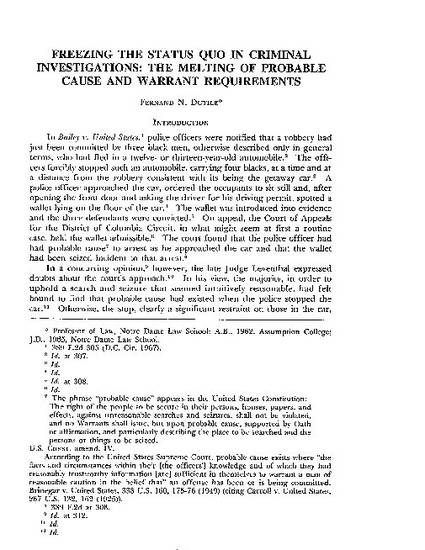
This article will trace the development of what can be called the "freezing the status quo" concept in the United States Supreme Court. That concept provides for intermediate level intrusions based on intermediate levels of justification, permitting law enforcement to isolate an event and exploit its opportunities for fruitful investigation. The article will begin with a discussion of two early cases which hinted at the Supreme Court's willingness to adopt the "freezing the status quo" doctrine as a means of justifying certain police activity in the absence of probable cause. Next, the Court's decisions in Terry v. Ohio and subsequent cases will be analyzed. These cases, which laid the foundation for the Court's use of the doctrine, will be reviewed, and the justifications for the decisions will be considered. Finally, the article will examine three cases in which the doctrine could have been used to justify concessions with respect to the warrant clause of the fourth amendment. The article will conclude that the doctrine, although useful, has been imperfectly utilized by the Court, and that future cases will be needed to spell out the limits of justifiable police behavior in "freezing the status quo."
Available at: http://works.bepress.com/tex-dutile/4/

Reprinted with permission of the Boston College Law Review.